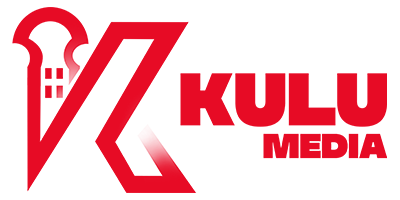Politics
Getachew Reda Warns of Renewed War in Tigray
Table of Contents
Getachew Reda Warns Against Renewed War in Tigray, Calls for Full Pretoria Implementation
Dubai — In a wide-ranging interview on the “Global Power Shifts” YouTube channel, former Tigray regional president and senior Ethiopian official Getachew Reda warned that elements within the Tigray People’s Liberation Front are exploring alignment with Eritrea to shield themselves from pressure by the federal government. He called the idea a grave mistake that would draw conflict back into Tigray at the expense of civilians.
“I will fight to the nail against my erstwhile comrades,” Getachew said, arguing that any move to leverage Eritrea as a counterweight to Addis Ababa risks inviting a new confrontation on Tigrayan soil. He stressed that such a scenario would be paid for by “my sisters, my brothers, my parents.”
Getachew spoke with host Jim Stenman from Dubai in a discussion that spanned the Horn of Africa’s strategic importance, Ethiopia’s domestic politics after the Pretoria peace agreement, the Grand Ethiopian Renaissance Dam, and the debate around Somaliland’s international recognition.
The Horn of Africa and Red Sea Stakes
Getachew Reda framed the Horn’s significance in geographic and demographic terms. The region sits along one of the world’s busiest sea lanes linking the Red Sea and Bab el-Mandeb to the Indian Ocean. He said any disruption there affects global trade, energy flows, and security. With Ethiopia’s population around 120 to 125 million, developments in the Horn carry weight for the Gulf, the Middle East, and Europe. He cited terrorism, fundamentalism, poverty, and underdevelopment as interconnected challenges that spill across borders.
You May Like: Red Sea Geopolitics: Ethiopia’s Stance and Future
GERD as Economic Catalyst and Political Signal
On the Grand Ethiopian Renaissance Dam, Getachew called the project transformative for Ethiopia’s economy, noting its potential to power the entire country and even neighbors. He emphasized its symbolic value as a nationally financed megaproject that demonstrated Ethiopian self-reliance.
Responding to long-running Egyptian objections, he rejected claims of exclusive historic rights over Nile waters. He argued for equitable sharing, saying upstream dams can reduce siltation and regulate flows that benefit Sudanese irrigation. He urged Egypt to modernize its water management rather than oppose Ethiopia’s fair use of the river.
Pretoria Agreement and Tigray’s Post-War Politics
Reflecting on the two-year war and the Pretoria Agreement, Getachew said the deal was necessary to halt catastrophic losses. He acknowledged serious miscalculations by the TPLF’s political leadership, including himself. He praised the bravery of Tigrayan fighters but said a negotiated end was the only viable way to avert further devastation.
Getachew Reda described intense friction with the TPLF executive committee during his tenure as interim regional leader. He portrayed the committee as control-oriented and resistant to inclusive administration, a stance he said blocked cooperation with the federal government and international partners. He also pointed to a crowded field of ex-combatants and officers and a pervasive blame culture that undermined governance.
Ordinary Tigrayans, he said, want peace, the safe return of internally displaced people, and basic security. He blamed both federal authorities and parts of the TPLF leadership for delays on humanitarian issues and reintegration.
Eritrea, Security Calculus, and a Red Line
Getachew Reda said he had initiated limited engagement with Eritrea as interim president to prevent renewed war, without dropping calls for accountability. He accused Eritrea’s leadership of seeking to destabilize Ethiopia by shifting any new conflict away from its own borders. In his view, some TPLF figures are attempting to rehabilitate relations with Asmara to shield themselves from domestic political pressure. He called that approach reckless.
He drew a clear red line. He would oppose any move that drags Tigray back into war with the federal government or turns the region into a proxy battlefield.
Somaliland Recognition and Sea Access
On reports that the United States might recognize Somaliland, Getachew said broader international recognition could follow and open a route for Ethiopia’s long-sought access to the sea. He cautioned, however, against conflating access with territorial ownership. For a nation of more than 100 million people, he said, some form of access is inevitable in the long run and should be secured through negotiated arrangements that avoid war.
Personal Background and Path to Politic
Getachew, who grew up in southern Tigray, trained in law and pursued graduate studies in the United States before returning to academia. He later joined government in a policy research role focused on the Horn of Africa, eventually rising to senior positions. He said he does not see himself as a typical full-time politician and emphasized an analytical, academic bent.
Hopes for Ethiopia
Closing the interview, Getachew said his priority is a peaceful, diverse, and economically dynamic Ethiopia. He wants Tigrayans to enjoy full autonomy within Ethiopia’s constitutional framework, including the legal right to secession if it ever came to that, but above all to avoid another destructive conflict. He pledged to work with the federal government and the international community to implement the Pretoria Agreement and to resolve disputes through dialogue.
“It is easier said than done,” he conceded, but argued that Ethiopia’s gains can be strengthened and its setbacks addressed if political leaders and communities put people’s safety and livelihoods first.
Program: Global Power Shifts
Host: Jim Stenman
Guest: Getachew Reda
Platform: YouTube
Editor’s note: This article is based on an interview published on the Global Power Shifts YouTube channel. Quotations and summaries reflect the guest’s statements during the program.
Discover more from Kulu Media
Subscribe to get the latest posts sent to your email.






